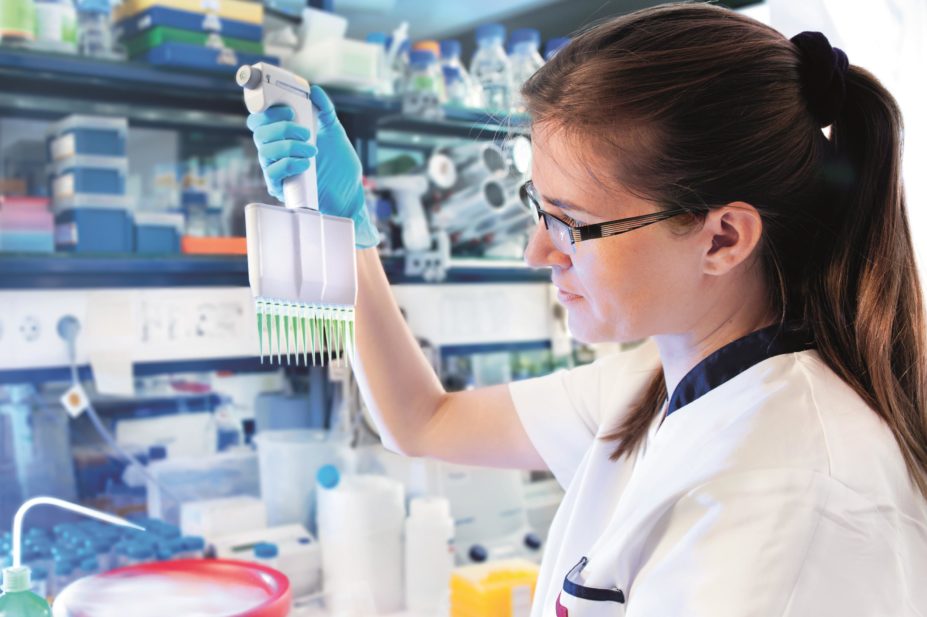
Shutterstock.com
The five-year strategic plan for pharmacy research in Wales was formally launched in 2015, led by the All Wales Chief Pharmacists Committee, supported by partners across Wales, including the Royal Pharmaceutical Society (RPS). The strategy aims to develop a lasting research culture within the pharmacy professions creating a step change improvement in the quality and quantity of research to benefit patients in Wales.
Pharmacy and pharmaceutical research has a strong basis within Wales but the changing health and social care environment and the complexities surrounding the role of the pharmacist poses a challenge for research. Creating a future-proof workforce where research evidence from pharmacy guides practice is crucial to provide quality care. A shift change is well underway within Wales with professional development acting as a driving force for improvement and change throughout the pharmacy profession; research is a part of this bigger picture.
Developed as part of the ‘Modernising Pharmacy Careers in Wales’ programme led by the Welsh Government, a key component of the strategic plan is the continued development of clinical academic careers for pharmacists. Clinical academics carry out research whilst maintaining clinical practice and have been supported in the medical profession for over a decade. These professionals are ideally placed to identify areas of research that impact on patient care and experience. A recent review[1]
of medical clinical academics led by the Medical Research Council (MRC) highlighted a number of barriers professionals face as they develop on the clinical academic pathway which anecdotally cross the boundary into pharmacy and the allied health professions too. These included a lack of available funding, poor and unclear future career prospects, low availability of positions and issues surrounding work/life balance.
Pharmacy has recently started to develop formal clinical academic training programmes that are supported by national funders, such as in Wales, Health and Care Research Wales and its partnership with the National Institute for Health Research. The Welsh plan sees a coordinated underpinning of research across Wales to ensure that aspiring researchers are supported through infrastructure and funding at all career levels. The approach will address the issues encountered by medical professionals by ensuring that there is integrated support and activity for pharmacists between clinical and academic departments, career pathways are clearly articulated and supported financially.
However, providing funded posts for researchers is only part of the solution, Wales will also seek to embed a culture where the value of pharmacy research is recognised and, through research, pharmacy services are promoted. In building this evidence base for pharmacy, knowledge and expertise will be shared across the sector and emerging research priorities will be identified. In 2015, for example, Welsh local practice forums hosted two research showcases to raise the profile of ongoing research and evaluation activity in Wales and as an opportunity for professionals to connect and share experiences.
The RPS has been working across the UK to develop and support clinical academic career pathways and to raise awareness of the role of pharmacy in research in all sectors and will continue to do so. For any professional looking to engage in research, the RPS provides a range of guidance materials to support the development of research ideas and funding applications and the Research Ready programme enables professionals to develop core competencies to deliver research.
Engaging with research and evaluation are core components of the RPS Foundation and Faculty programmes which support evidence-based decision making. The RPS Map of Evidence curates research and other evidence from across the profession and the RPS Networks allowing members to engage with the latest news, events and funding opportunities as well as stay up to date with research and best practice. In addition to one-to-one support and advice, the RPS mentoring programme also allows aspiring researchers to receive support from more senior colleagues.
References
[1] A cross-funder review of early-career clinical academics: enablers and barriers to progression, December 2015, Medical Research Council, https://www.mrc.ac.uk/documents/pdf/review-of-early-career-clinical-academics/

